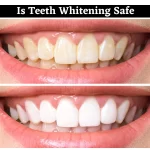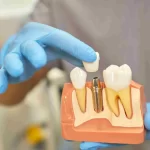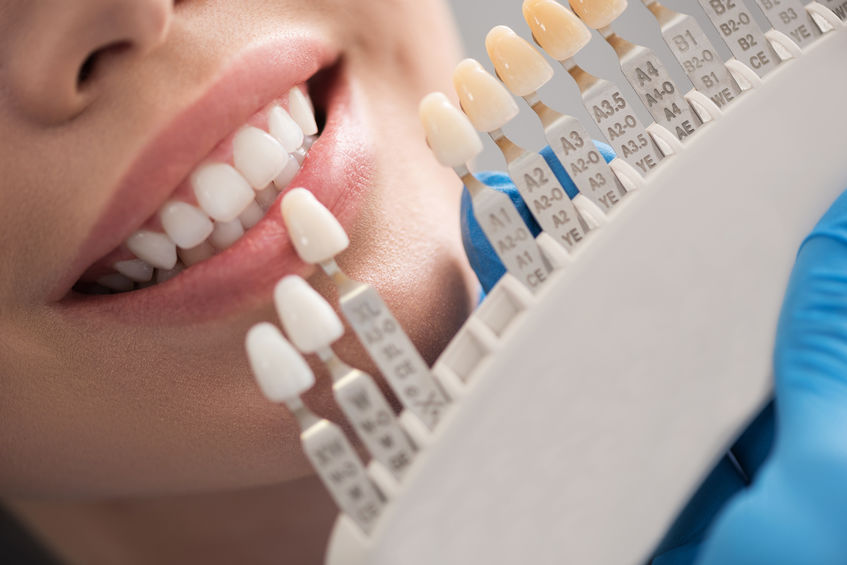What Is Tooth Bonding In Cosmetic Dental Work?
Tooth bonding, also known as dental bonding or composite bonding, is a cosmetic treatment in which tooth-colored material is attached to teeth. This is done due to various reasons –
- Fixing teeth
- To close gaps between teeth
- To change the shape of teeth
Compared to other cosmetic dentistry procedures, tooth bonding is relatively simpler and cheaper. It is the easiest way to improve your smile.
Why Is Tooth Bonding Done?
If you have any of the following issues, you could be a great candidate for tooth bonding –
- Decayed teeth
- Cracked, broken, or chipped teeth
- Discolored teeth
- Spaces between teeth
- Misshaped teeth
- Exposed roots
What To Expect If You Have Your Teeth Bonded?
Before The Procedure
Composite bonding doesn’t involve any extensive planning or requirements. This procedure doesn’t even involve anesthesia – unless the patient in question is getting bonding done to fill a decayed tooth.
Your dentist will use a shade guide to match the composite resin with the natural color of your teeth. This allows the bonding treatment to look as natural as possible.
During The Procedure
The surface of the tooth in question is prepped. This is done by roughening the surface. A conditioning liquid is applied. This helps the bonding agent to attach to the tooth.
The composite – a durable plastic substance – is applied to the bonding agent. This is then molded into the desired shaped and smoothed. The tooth-colored putty resin is then set with the help of a special light. The light allows the composite to “bond” to the tooth surface.
Once it’s set, your dentist will trim the excess, shape, and polish the restoration to perfection.
Time Taken For The Procedure To Complete
On average, tooth bonding takes about 30-60 minutes to complete. Depending on the amount of bonding to be done, it could take longer.
Dental bonding is a procedure that doesn’t involve any downtime. Since the treatment doesn’t involve anesthesia, you can go back to your normal routine immediately after the treatment is complete.
Does Tooth Bonding Have Any Risks?
There aren’t any major risks associated with composite bonding. However, one should remember that the composite material used in the bonding treatment isn’t as strong as one’s natural teeth.
The bonding material can chip, crack, or break under excessive force. Tooth bonding isn’t as resilient as the other forms of cosmetic dentistry – dental crowns, veneers, etc.
Avoid the following if you want to prolong the life of your bonded teeth –
- Eating ice
- Biting your nails
- Chewing on pens and pencils
- Biting down on hard candy and other hard foods
Composite isn’t also stain-resistant. Smoking and ingesting colored drinks such as tea and coffee can cause your bonding material to get stained.
How Should You Care For Bonded Teeth?
You don’t have to follow any extensive routine to take care of your bonded teeth.
Brush Twice Daily
Perhaps the most basic step – brushing twice a day – once in the morning and once before going to bed keeps your mouth healthy. Use a toothpaste containing fluoride in combination with a soft-bristled toothbrush.
Make sure you brush all the surfaces of your teeth – inside and outside – and also brush your tongue. Replace your toothbrush every three months to make sure that your teeth are cleaned properly.
Flossing Once A Day
To care properly for not just your restoration but also your oral health, flossing is necessary alongside brushing.
Floss from the base up to the gum line to thoroughly remove all the plaque. Finish flossing one tooth before moving on to the next.
Rinse After Meals
Rinsing your mouth after meals helps flush out any remaining food particles. It also helps reduce the acidity level in your mouth.
Avoiding Colored Foods And Drinks
As mentioned earlier, colored foods and drinks end up staining not only your natural teeth but also your bonding restoration.
Tea, coffee, sodas, red wine, berries, artificially colored candies, etc. – these are some of the examples of foods and beverages that accelerate tooth discoloration.
Avoiding Habits That Hamper Oral Health
Smoking and chewing tobacco not only stains your natural teeth and the bonding material but also has adverse effects on your oral health.
Additionally, acidic foods eat away the enamel and the bonding resin. This can make your teeth sensitive and also susceptible to chipping.
How Do I Find An Expert In Cosmetic Dentistry?
A general dentist who offers cosmetic treatments is also known as a cosmetic dentist. Some of the easy ways to get in touch with a cosmetic dentist expert are –
- By asking people you know who have received cosmetic procedures in the past. People’s experiences are a fantastic way of figuring out which dentist knows what they’re doing.
- Googling “cosmetic dentist near me” is also a pretty great way to find out which dental offices around you are offering cosmetic treatments. Chalk up a list of the establishments that catch your eye and visit them.
- While you’re visiting one of the offices on your list, make sure you look around. Assess whether the space is clean and the staff is welcoming. Ask the in-house dentist all questions regarding their expertise and the procedure you’re looking for. A quality dentist has no qualms with transparency and answering their patient’s questions.
- Ask the dentist you’re visiting if they can show you some of their previous work. A visual representation of the dentist’s work goes a long way in cementing their skill level.
- You can also use the American Dental Association’s dentist finder tool to shortlist all the licensed dentists in your area.
At Minneapolis Dental, our in-house expert, Dr. Lorrie Hodd is at the forefront of her profession. Her years of practice and professionalism have made her the cosmetic dentist expert you need. If you’re looking to undertake cosmetic treatment, there is no place better than MPLS Dental.
To book a consult with our dentist, give us a ring at (612) 332-1255. You can also fill this form and we will get back to you at the earliest!


















